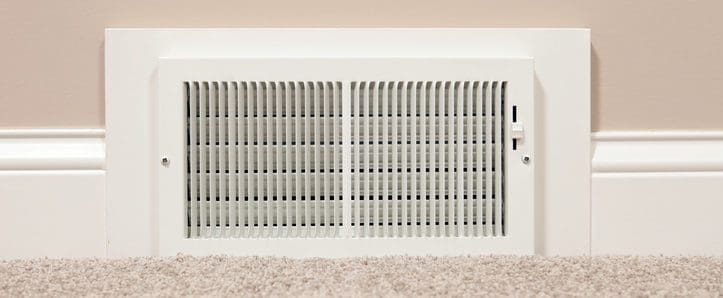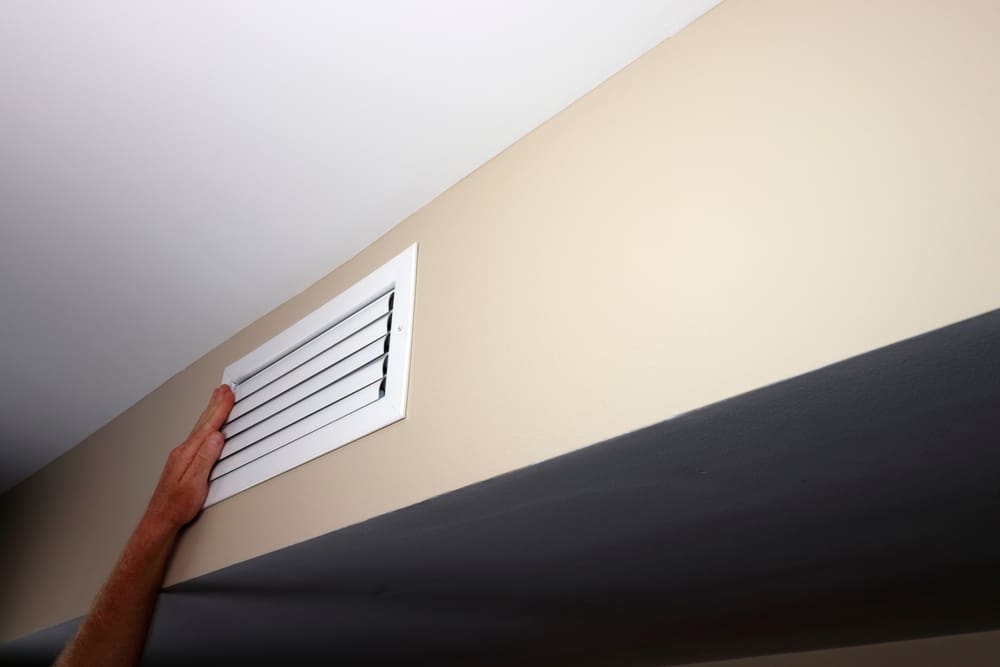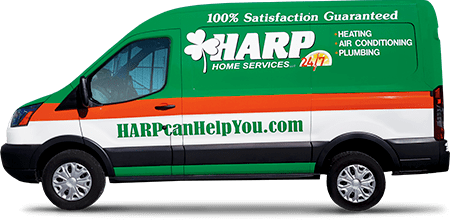
As a homeowner, you have a variety of expenses. Between utilities, property taxes, and the cost of your kids’ after-school activities, we’d be surprised if you didn’t follow the advice that could save you a few dollars here and there. The thing is this: not all advice is good advice. Take your home air conditioning system for example. You might be thinking that closing vents in unused rooms is a great idea to save on energy costs. So does closing vents redirect air and does it help cool other rooms? The notion that closing vents in unused rooms can lower your energy bills is simply not true. The advice of an HVAC expert? Stop covering AC vents.
Should You Close Vents in Unused Rooms?
Some people may think that covering vents will prevent treated air from being wasted in uninhabited rooms and will redirect airflow to other rooms. But is that true? Does closing vents redirect air to other rooms? In reality, closing vents can have the opposite effect. Vent redirect is simply not a thing.
What Closing AC Vents Actually Does
So does closing air vents help cool other rooms? Not really. Here’s why:
1. Closing air vents disrupts airflow
When you cover your home air vents, only you are aware of it. Your heating and cooling system can’t tell if the vents are covered, so air will still get pumped to that vent. Now, if cold air is being pumped to a room, but the return vent isn’t able to pull the warm air out of that same room, then the airflow in your system gets thrown out of whack. So does closing air vents help cool other rooms? Not really, no.
2. It can cause a pressure buildup
In an attempt to redirect air vent heating and cooling, you may disrupt the airflow.
When air can’t flow through rooms properly, a pressure buildup can form inside your ducts and HVAC unit. This can ultimately make for low airflow and cause your heat exchanger to crack which will allow carbon monoxide to leak into your home.
As you can imagine, you definitely don’t want this happening as you will not only need your HVAC repaired but your indoor air quality will also be severely affected, and could even become toxic.
3. Closing air vents can actually be a waste of energy… and money!
That pressure buildup can cause more than your heat exchanger to crack. It can also cause your air ducts to crack and develop leaks. If your ducts have leaks, then treated air will escape and cause your HVAC system to work harder to heat or cool a room, ultimately wasting energy and raising your utility bills.

Can you cover the AC vents?
Apart from attempting to redirect airflow to other rooms, is it safe to cover an air vent?
Covering your vents with furniture or vent covers can disrupt the airflow inside your ductwork and potentially harm your HVAC system. In addition, if you improperly cover vents with furniture, you run the risk of them being overheated (if your HVAC is set to heating) or getting moldy (if the air pumped out is too humid).
It’s therefore not recommended to cover air vents with either furniture or vent covers if you are using your HVAC regularly.
Related Article: Optimal Thermostat Placement & Where You Shouldn’t Place It
Conclusion – Does Closing Air Vents Help Cool Other Rooms?
Contrary to what we might think, closing vents in unused rooms will not actually help increase airflow to other rooms and make them cool (or warm) faster.
So should you close vents in unused rooms? Chances are, it will actually end up costing you more money as it could damage your HVAC system, potentially causing unwanted leaks. There are many other ways you can keep your house cool in the summer or warm in the winter and disrupting airflow is not one of them.
Lower Your Utility Bills with HARP
The experts at HARP Home Services LLC have the expertise and experience needed to keep your ducts clean and your HVAC system running well. Our HVAC technicians are factory trained, licensed, and fully certified, so you can be sure that you’ll receive exemplary AC maintenance services from trustworthy professionals.


